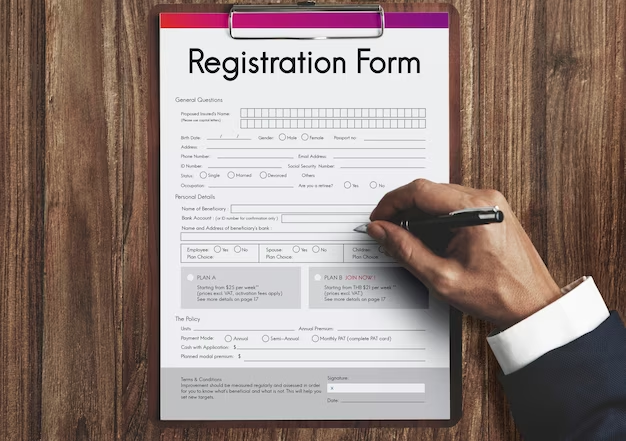The United Arab Emirates (UAE) is a federation of seven emirates, known for its rich culture, vibrant economy, and as a crossroads for global commerce. In recent years, the UAE’s government has opened the door to a select group of foreigners to become UAE citizens, introducing new possibilities for those who meet certain criteria. Could you be one of the few to gain this prestigious status? In this article, we’ll explore the benefits of having UAE citizenship, the impact it could have on your personal and professional life, and the rigorous process to becoming a UAE citizen.
The Privileges and Advantages of UAE Citizenship
UAE citizenship could grant you a wide array of benefits that come with being a citizen of this dynamic country. Among these are:
- The ability to live, work, and study in the UAE without the need for visas or sponsors.
- Access to the UAE’s healthcare and educational systems.
- Exemption from paying personal taxes, as the UAE is known for having a tax-free environment.
- The right to own property in any part of the country, an advantage historically limited to UAE nationals.
- Enhanced travel convenience, as UAE citizens can visit many countries without the need for pre-arranged visas.
Having UAE citizenship also means being part of a society that prides itself on security, economic stability, and a high standard of living. You could get to experience and contribute to a culture that celebrates both tradition and modernity, where innovation thrives, and where the government invests heavily in infrastructure and public services.

The Eligibility and Requirements for Acquiring UAE Citizenship
The process of obtaining UAE citizenship is stringent, with several criteria that applicants must fulfill. Here are some of the key requirements:
- Possessing a clean criminal record.
- Demonstrating financial stability and the ability to support oneself.
- Being proficient in the Arabic language.
- Renouncing any previous nationality, as the UAE does not generally recognize dual citizenship.
- Committing to abide by the Emirati laws and customs.
It’s important to note that UAE citizenship is primarily obtained by law of blood (jus sanguinis) or by naturalization for those with a deep, substantial connection to the country—usually through marriage or long-term residence.
| Visa Requirement Feature | UAE Citizens | Non-Citizens with Residence |
|---|---|---|
| Duration of Stay | Indefinite | Limited by Visa Type |
| Visa Renewals | Not required | Required at specified intervals |
| Sponsorship | Not required | Generally required |
| Work Authorization | Automatic | Requires separate approval |
| Property Ownership | Full Rights | Restricted in some areas |
Enshrouded by the allure of the UAE’s prosperity, the journey to becoming a citizen is one of commitment and continuous adaptation. The values placed on loyalty, social harmony, and respect for the UAE culture are integral to the will of its leaders to carefully select who may join the ranks of UAE citizens.
As we delve deeper into the intricacies of acquiring UAE citizenship, one must consider both the tangible and intangible facets it could add to your life. From the luxury of visa-free travel to the subtleties of cultural integration, holding a UAE passport is not just a matter of paperwork—it’s a doorway to a distinctive way of life that cherishes ambition, respects heritage, and thrives on innovation.
The Naturalization Process and Its Implications
Securing UAE citizenship via naturalization is a comprehensive process that demands patience and meticulous preparation. If you are considering this path, you must be ready to navigate the legal and bureaucratic channels:
- An official application must be submitted through the Federal Authority for Identity and Citizenship.
- This is followed by thorough background checks, personal interviews, and health screenings.
- Successful applicants must take an oath of allegiance to the UAE.
- Once granted, citizenship bestows immediate rights and responsibilities on the new citizen.
- A new citizen is also issued a UAE national ID and passport.
The implications of becoming a naturalized citizen include fully integrating into the Emirati way of life and potentially taking part in the political process. It’s a transformation that could redefine your cultural identity and offers a sense of belonging in a nation that’s rapidly ascending on the world stage.

The Impact on Professional and Personal Opportunities
Gaining UAE citizenship could dramatically change your professional and personal prospects in several ways:
- Professionally, you could access jobs reserved for citizens, ascend to higher positions, and enjoy more stable employment conditions.
- You might also harness the opportunity to start your own business in a burgeoning market without the complexities faced by foreigners.
- On a personal level, being a UAE citizen offers a feeling of security and permanence, allowing for long-term planning and investments.
- Citizens can sponsor relatives for UAE residency, thereby extending benefits to their immediate family.
- With citizenship, you can fully engage with the community, contribute to civic life, and enrich your personal development with new social and cultural experiences.
Having UAE citizenship solidifies your standing within the country’s social and economic fabric, potentially opening doors to avenues that were otherwise restricted or out of reach.
Conclusion
As the UAE continues to grow and diversify its global influence, the potential for select individuals to join its ranks as citizens contributes to the intricate tapestry that is modern Emirati society. Achieving UAE citizenship represents a pinnacle of dedication to a nation that values prestige, loyalty, and cultural prowess. Whether for personal fulfillment, professional ambition, or familial stability, becoming a UAE citizen is an honor that carries deep significance and substantial rewards.

FAQ Section
Q1: Is UAE citizenship available to all expatriates living in the country?
A1: No, UAE citizenship is not automatically available to all expatriates. It’s granted on a highly selective basis, considering applicants who have made exceptional contributions, have special talents, or fulfill strict criteria laid out by the government.
Q2: How long does it typically take to become naturalized as a UAE citizen?
A2: The timeframe varies greatly and can take several years, as it involves a thorough review of your application, background checks, and a demonstration of your commitment to the UAE’s laws and values.
Q3: Can you hold dual citizenship with the UAE?
A3: The UAE generally does not recognize dual citizenship. Naturalized citizens are typically required to renounce their original citizenship.
Q4: Are there any compulsory military service requirements for UAE citizens?
A4: Yes, UAE citizens, including naturalized ones, may be subject to national service, as it is mandatory for all male Emirati nationals between 18 and 30 years old.
Q5: Can citizenship be revoked?
A5: UAE citizenship is not absolute and can be revoked under certain circumstances, such as fraud during the application process, criminal activity, or actions that undermine the security of the state.
